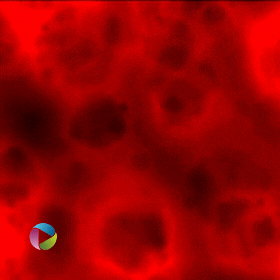 Blood tests in development for Alzheimer’s disease rely on Aβ and phosphorylated tau [1], markers of its hallmark pathologies. While powerful, these markers are only accurate in about 90 percent of cases. Now, a new study suggests that a broad protein panel can do better, and allow clinicians to determine disease stage. In the May 25 Alzheimer’s and Dementia, researchers led by Nancy Ip at the Hong Kong University of Science and Technology debuted a 19-protein panel that detected clinically diagnosed AD in two small cohorts with 97 percent accuracy. The panel includes several proteins that change with disease stage, allowing it to distinguish mild from severe dementia. Ip believes this set of diverse proteins might hold clues to underlying biological processes and mechanisms of disease as well.
Blood tests in development for Alzheimer’s disease rely on Aβ and phosphorylated tau [1], markers of its hallmark pathologies. While powerful, these markers are only accurate in about 90 percent of cases. Now, a new study suggests that a broad protein panel can do better, and allow clinicians to determine disease stage. In the May 25 Alzheimer’s and Dementia, researchers led by Nancy Ip at the Hong Kong University of Science and Technology debuted a 19-protein panel that detected clinically diagnosed AD in two small cohorts with 97 percent accuracy. The panel includes several proteins that change with disease stage, allowing it to distinguish mild from severe dementia. Ip believes this set of diverse proteins might hold clues to underlying biological processes and mechanisms of disease as well.
- A panel of 19 plasma proteins distinguishes AD from controls with 97 percent accuracy.
- It also differentiates mild and severe dementia.
- It is not yet clear if the panel is specific for AD.
Commenters agreed the panel has potential. “This is a very nice, first-step study that should be followed up in larger, independent samples,” Sid O’Bryant at the University of North Texas Health Science Center in Fort Worth wrote to Alzforum (full comment below). Pieter Jelle Visser and Betty Tijms at Amsterdam University Medical Center suggested comparing the panel to traditional CSF and PET biomarkers of AD, as well as testing its ability to detect preclinical disease. “A number of validation studies would be needed in order to further understand the clinical utility of this panel,” they wrote to Alzforum (full comment below).
Several groups have attempted to define plasma biomarkers of AD over the years, but these typically have not held up in replication studies (e.g., Mar 2014 news [2]; Feb 2016 news [3]). Among those efforts, a panel of 18 proteins identified by researchers in Tony Wyss-Coray’s lab at Stanford University and a set of four proteins found by William Hu and colleagues at Emory University, Atlanta, garnered some attention, but neither finding has been reproduced (Oct 2007 news [4]; Aug 2012 news [5]).
Read the full article on the Alz Forum – https://www.alzforum.org/news/research-news/stunning-diagnostic-accuracy-plasma-protein-panel [6]